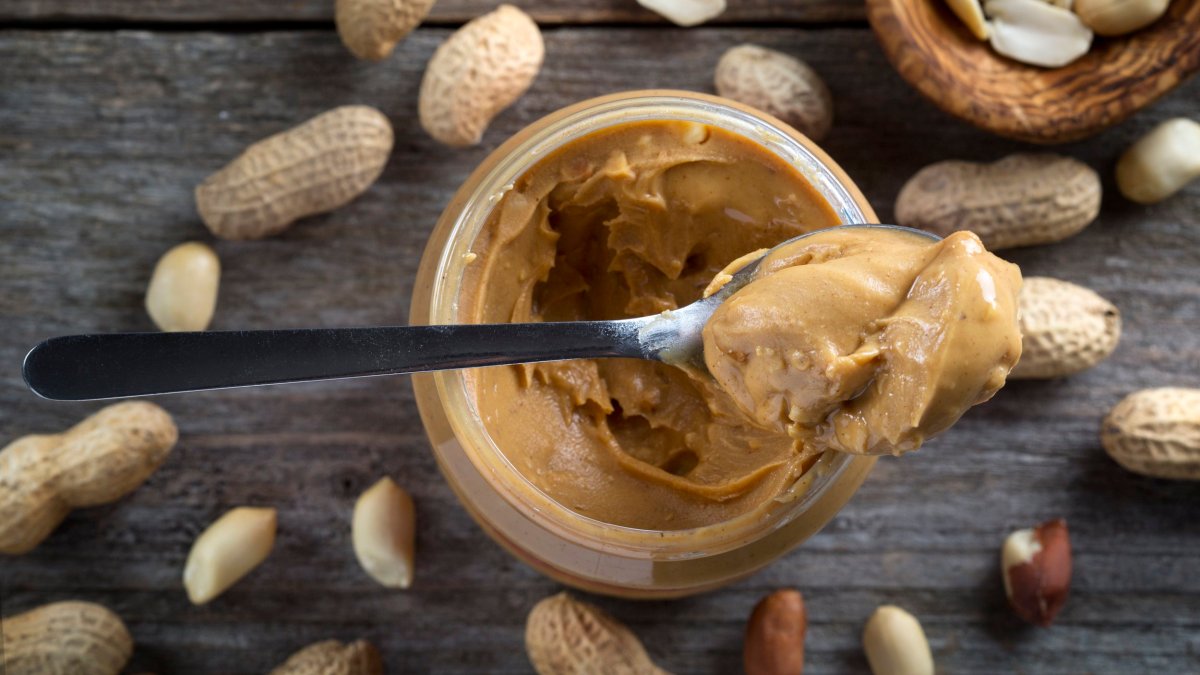Yes, it’s a health food – and crunchy is better than smooth, says a nutrition scientist
Peanut butter, which was once a rarity in the UK, is now everywhere. As of 2020, it now outpaces sales of jam in Britain, and you can find dozens of different nut butters in any supermarket. A significant part of its popularity is that it is seen as a healthier option than other standard spreads. Even the sweetest version contains far less sugar than chocolate spread or jam. But alongside its popularity has grown a backlash – with some questioning whether its protein content is overplayed, and others on social media videos dismissing it entirely as “bad for you”.
Professor Bernadette Moore, nutritional scientist and chair of nutritional biochemistry at the University of Liverpool, says such concerns are based on outdated assumptions.
“The nature of standard peanut butter in the UK has changed over time,” she says. “Traditionally, as you still see in America and here in the 80s, there were lots of branded peanut butters made with palm oil or other emulsifiers, as well as lots of added sugar.”
Now, thanks to an increasingly health-conscious consumer, “there are lots and lots more brands in the UK that are advertising themselves as 100 per cent nuts, or 99.7 per cent nuts with a pinch of salt. The composition of peanut butter has improved.”
Peanut butter is relatively high in fat, though Professor Moore says this is a question of nuance.
“Although there is some saturated fat in peanut butter, by far and large, the fat profile is quite good.” The saturated fat in nuts, she says, should be treated like that in dairy: we need it, but it should be consumed in moderation.
“With peanut butter there is saturated fat, but it’s much more healthful than a sausage for example.”
Some brands (like Pip & Nut and Manilife) are choosing to make their spreads with peanuts that are naturally high in oleic acid – a fatty acid that is particularly good for us and is in its highest amounts in olive oil.
As for the protein content, peanut butter has the same amount as chicken, per 100g. A standard serving of peanut butter amounts to 30g or two tablespoons – this amounts to roughly 17g fat, 2.1g saturated fat (around 10 per cent of the recommended daily amount for adults), and 9.7g protein (around 20 per cent of the recommended daily amount).
“I disagree when people say it’s not a high protein food,” says Professor Moore. “I have a son who refuses to eat cheese or yogurt, but he does eat peanut butter, and I think that that’s a helpful choice. Switching out a ham sandwich for peanut butter is a good way to increase fibre, not lose out on your protein and get healthy fats.”
The high fat levels in proportion to protein levels makes nuts, and nut butters, a particularly energy-dense food – meaning it has a high volume of calories relative to weight or volume. Professor Moore acknowledges that for people who are actively trying to lose weight this is something to watch out for.
“For people who are trying to lose weight, we would definitely suggest that foods like peanut butter are consumed with caution and with an awareness of portion size,” she says. For children, she recommends giving them a portion for them to spread themselves onto a healthy vehicle like an apple or whole wheat toast. “If the child is genuinely hungry and asks for more than you can give them a small amount more. We really should try not to restrict children’s food,” she adds.
But for adults not actively trying to lose weight who eat relatively healthy diets, she is not concerned about over-eating. “In the context of a healthful diet, I think the portion size is pretty easy to control – there’s only so much peanut butter you can get on a piece of toast.”
Part of the reason she’s not concerned is that beyond the healthy fats and good dose of protein, peanut butters are a great source of other nutrients and minerals that we are often lacking in the UK.
“Nuts and seeds are the one of the things that we could all do more of in this country, and that’s because they’re high in protein, fibre, healthy fats, and micronutrients like polyphenols [plant based compounds with antioxidant effects]. The minerals in peanut butter are in small amounts, but still more than you’re going to get from processed meat.” Even when there is salt added for flavour, she says that this is relatively low risk compared to the amount of salt you add via soy sauce to a takeaway for example.
She adds that crunchy over smooth peanut butter is far better for you in that regard, because the higher fibre content means we absorb less calories. “In recent years, exciting research that has come from the microbiome field tells us that the higher fibre a food is, the less of a guarantee that you’re going to get all of those calories absorbed.”
